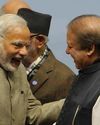THE RIGHT TO EDUCATION ACT, FAR FROM HELPING REALISE A DREAM, IS A NIGHTMARE. THE GOVERNMENT IS INACTIVE ON THIS AND OUR CHILDREN ARE PAYING THE PRICE.

I WANT EVERY Indian child, girl and boy, to be so touched by the light of education. I want every Indian to dream of a better future and live that dream.” Those were the words of then Prime Minister Manmohan Singh in his address to the nation on 1 April 2010, the day the Right of Children to Free and Compulsory Education Act became operational.
Seven years later, there is widespread acknowledgement that the Right to Education (RTE) Act (as it is popularly known), far from helping realise a dream, is actually a nightmare. A law that was supposed to be the solution to all of India’s problems in primary education has now itself become the problem. Far from increasing access of children from low-income backgrounds to education, it has imperilled it; far from improving the quality of education, it has led to deterioration in standards. And as if this were not enough, it has opened up more avenues for corruption.
Staunch defenders of the Act, though their numbers are dwindling, insist that the Act is not the problem; poor implementation is. The sceptics, whose ranks are swelling, concede that the RTE Act may have helped in a couple of areas, but point out that they stand vindicated in their initial assessment—that it is a fundamentally and conceptually flawed piece of legislation. It has focussed on infrastructure and inputs—teacher-pupil ratio, teacher qualifications and salaries, uniforms—rather than quality of education. At a time when the licence-quota raj in education needed to be dismantled and the market allowed to grow to meet rising demand, its provisions are designed to reinforce the licence raj and kill the market.
This story is from the May 2017 edition of Swarajya Mag.
Start your 7-day Magzter GOLD free trial to access thousands of curated premium stories, and 9,000+ magazines and newspapers.
Already a subscriber ? Sign In
This story is from the May 2017 edition of Swarajya Mag.
Start your 7-day Magzter GOLD free trial to access thousands of curated premium stories, and 9,000+ magazines and newspapers.
Already a subscriber? Sign In

Refuging Progess
There is a well-orchestrated global conspiracy to deny scientific and technological developments from the West to Third World countries.

The Monk Of Science
Vivekananda believed that Religion should be subjected to scientific methods of investigation. The third and concluding part of our series on the Swami and his views on science.
The Next Step
Indian technical manpower can be trained for high-value-added emerging services in the era of mass commoditisation of hardware.
The Threat Of Autarchy
The force of globalisation is an irreversible reality, and it is countries like India and China that will nurture it going forward.

Neanderthals: The Womb Of Caves
Recent discoveries indicate that Neanderthals may have had a rich inner life, including symbolic thought. Indeed, they may have been the progenitors of human religions.

Getting India's World Right
Incremental concessions will get India nowhere with Pakistan and China. What we need is a classically conservative foreign policy, based on realism.

The Hesitant Orbit
In order to march boldly ahead into the deep space, New Delhi must work towards building a station, boost its techno-economic planning and use the Indian Space Research Organisation smartly.

Nudges And Narratives
The debate surrounding Sanjay Leela Bhansali’s Padmavati brings India a complex network of portraits within a cultural world-system.

The Spell Of Specialisation
THE INDIAN ADMINISTRATIVE SERVICE NEEDS AN URGENT REJIG. THE KEY TO SPEED AND EFFICIENCY LIES IN PUTTING AN END TO A GENERALIST APPROACH AND IN GOING FOR A NEW SERVICE.
The Great Gamble
With demonetisation, the prime minister has taken a huge risk— both economic and political. He must succeed, because this move could transform both our economy and our society.